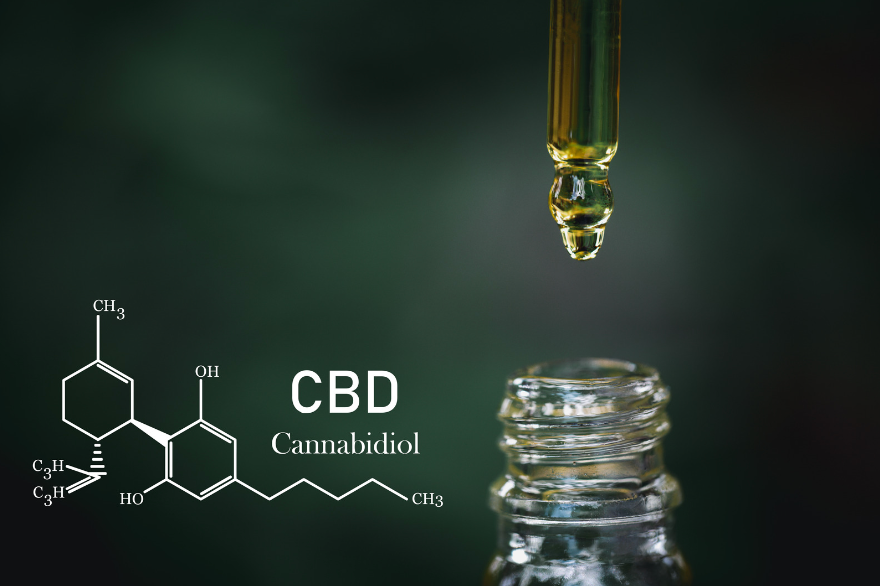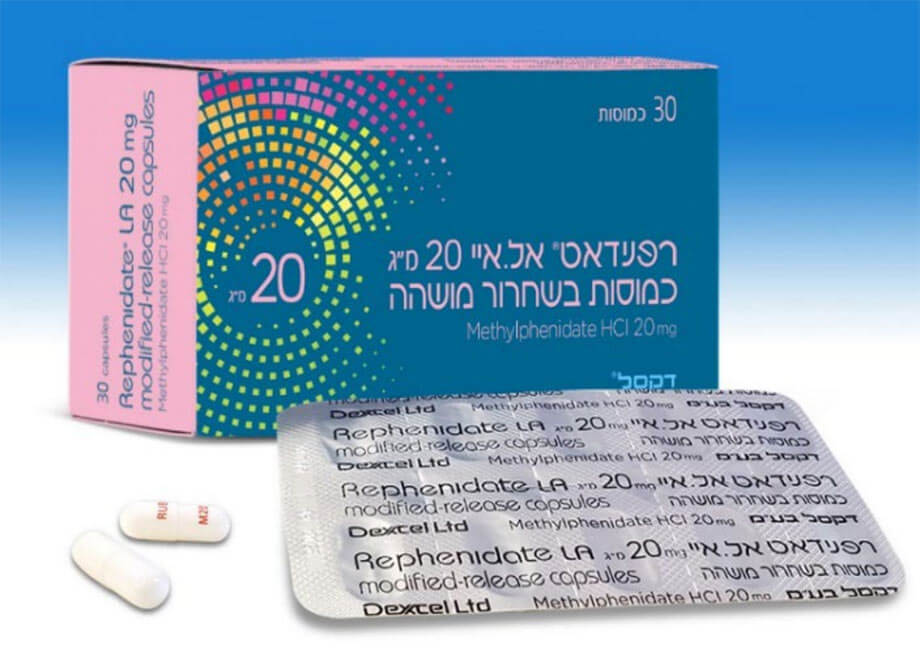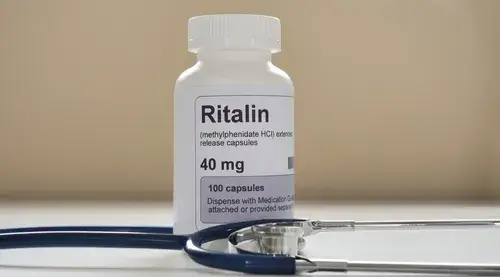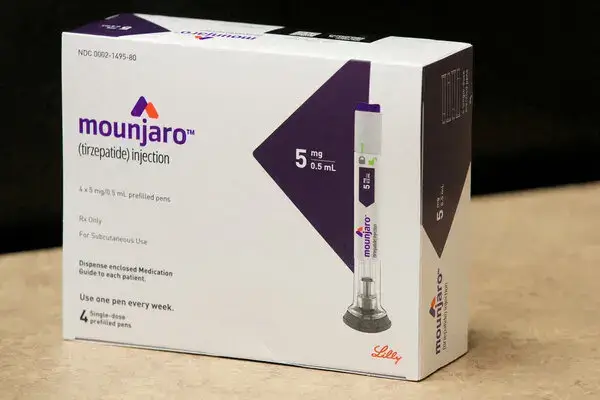CBD has become one of the most talked about topics in the health field in recent years. Many are interested in it due to the medical potential attributed to it in various studies, along with the fact that it does not cause a "high" feeling like other cannabis components. Some people refer to it as a treatment option for a range of health conditions, from chronic pain to psychological support. In the following article, we will explore how CBD may be used as a natural medicine, examine what the latest studies say, and learn how it can be integrated into your daily routine in an informed way.
It is important to remember that each body reacts differently to active ingredients, and CBD is still in the process of ongoing research. However, many people report improvements in various indicators thanks to its use, including general relaxation, pain reduction, and improved sleep quality. Furthermore, some doctors and therapists incorporate the component as part of a comprehensive treatment plan, taking into account the exact dosage and other needs of the patient.
As you read this article, you will learn about the mechanisms of action of CBD, the main areas of treatment where its capabilities are of interest, the legal aspects that still vary from country to country, and important considerations for purchasing products containing it. You will also receive practical tips for safe use and find external sources of information for further study.
CBD and the endocannabinoid system
General background
The word "CBD"Represents one of the main components of the cannabis plant, along with THC and other components called cannabinoids. Unlike THC, CBD does not cause similar psychoactive effects. It is considered relatively safe to use, when taken in appropriate doses and in consultation with professionals.
Interest in this compound has grown after some studies suggested its potential to support a wide range of medical conditions. Researchers in many countries continue to examine how CBD interacts with the endocannabinoid system in the human body. This system is responsible for regulating many processes, such as maintaining internal balance, stress response, appetite, and more.
The importance of the endocannabinoid system
The endocannabinoid system (ECS) is made up of CB1 and CB2 receptors, which are found in different areas of the body. CB1 is prevalent in the brain and central nervous system, while CB2 is associated with immune system cells and peripheral tissues.
When chemicals like anandamide bind to these receptors, the body is able to control the regulation of pain sensations, mood, etc. CBD affects the system mainly indirectly. It may encourage the production of certain neurotransmitters or reduce inflammatory processes, without causing an intoxicating effect.
Ensuring balance in the body
The purpose of the ECS is to help the body maintain balance (homeostasis). External and internal factors can disrupt this balance, and in some cases CBD provides mild support for the recovery process. However, many research results are still considered “theoretical” or “preliminary.” Therefore, the approach of experts is to accept the findings with caution, while recognizing that some people already benefit from using the component.
How does CBD work in the human body?
Mechanism of action
Considered a non-intoxicating cannabinoid, CBD interacts with receptors and neurotransmitters in the body. It may affect enzymes that break down certain substances, and even inhibit their breakdown, thus prolonging their beneficial effects.
Researchers see potential for CBD to inhibit inflammation and the recruitment of inflammatory cells to damaged areas. It may also help balance nervous system activity, whether through general relaxation or by regulating the production of natural endorphins.
Effect on inflammation and pain
Inflammation is a vital response of the body, but when it becomes chronic, serious problems can develop such as autoimmune diseases, joint damage, and more. Sometimes, CBD acts as a gentle pain reliever through mechanisms that include direct and indirect effects on pain receptors.
The importance of dosage and quality
There is no one-size-fits-all dosage. Different people react differently, so it’s important to start with a low dose and see how it works over time. It’s also a good idea to make sure that the CBD source is from a reputable manufacturer who provides a lab test certificate. This certificate will indicate the percentage of active ingredients and the absence of heavy metals or pesticides.

CBD as a medicine for pain and inflammation
Background on the treatment of chronic pain
Chronic pain poses a serious challenge to the medical field. Conventional painkillers, such as opiates, can cause severe side effects and even addiction. At the same time, there has been a growing demand for natural solutions. CBD has been introduced as one of them, due to its possible mechanisms of action to reduce pain sensitivity and soothe inflammatory foci.
Preliminary findings from studies
Limited studies suggest that for some people, using CBD has resulted in pain relief and improved quality of life. For example, people with chronic joint pain, arthritis, or sports injuries have reported a decrease in pain intensity.
However, it should be remembered that the contribution is not the same for everyone. Some subjects responded more than others, and monitoring by a medical professional is always required, especially when combining CBD with other medications.
Anti-inflammatory effect
Chronic inflammation can develop for a variety of reasons, including metabolic problems, obesity, mental stress, or autoimmune conditions. Some researchers suggest that CBD may act as an anti-inflammatory by affecting cytokines and proteins involved in immune defense.
While some of the results are positive and promising, the scientific community still requires large-scale clinical studies to confirm the effectiveness of the treatment and to determine appropriate protocols for different patients.
Treating neurological conditions and epilepsy with CBD
Epilepsy and CBD-based treatment
One of the most prominent areas where CBD has already proven itself is in the treatment of certain types of epilepsy, especially in children with rare syndromes such as Dravet Syndrome. In the United States, the Food and Drug Administration (FDA) has approved a CBD-based drug for the treatment of resistant epilepsy, which is considered a significant achievement.
The mechanism of the possible effect on electrical activity in the brain
Epilepsy is caused by disruptions in the transmission of electrical signals between nerve cells. CBD may help regulate this activity, reducing the risk of seizures. It is believed that CBD promotes neurochemical balance and reduces the severity and frequency of seizures.
Additional neurological uses
Beyond epilepsy, researchers are also investigating the effects of CBD on neurodegenerative diseases such as Alzheimer's, Parkinson's, and multiple sclerosis (MS). Animal studies have shown positive effects, but larger, more controlled trial protocols are needed for humans. However, interest is growing due to the substance's relative safety and well-tolerated nature.
Impact on mood and mental health
CBD as a complementary medicine for anxiety disorders and depression
Anxiety and depression affect millions of people worldwide. Psychiatric medications can help, but they can sometimes come with serious side effects or addiction. As a result, CBD is seen by some patients as an alternative or complement to existing treatments.
Initial studies show potential for a calming effect on the nervous system, and a reduction in mental stress levels has sometimes been observed. Researchers suggest that the ingredient may affect serotonin receptors, which are thought to be relevant in regulating mood.
Sleep disorders and improving sleep quality
Many people with mental health issues also struggle with sleep. CBD may help with general relaxation, which can help you fall asleep more easily and maintain a restful sleep. Some people prefer to take a few drops of the oil before bed to help their bodies relax and prepare for rest.
Combination with professional treatment
Despite the hype, it is not recommended to rely solely on CBD as a treatment for mental health issues. Psychological approaches, conventional medication, and professional guidance are still essential. CBD can be a significant aid, but it is advisable to consult a doctor or psychiatrist before starting to use it regularly.
How to use and formulations of CBD products
Pure CBD oils and extracts
CBD oil is one of the most popular products. It can be dripped under the tongue, mixed into drinks, or applied directly to the skin, according to the manufacturer's instructions. In the case of sublingual consumption, the effects may appear faster than when swallowed.
When choosing an oil, pay attention to the type of extract: there are Full Spectrum extracts, which contain a wide range of cannabinoids and other compounds, and there is Isolate, which contains only pure CBD. There is also a Broad Spectrum category, which contains almost no THC, but retains other components with synergistic potential.
Capsules and tablets
Some people prefer capsules or tablets, which allow for precise dosing and convenience. The absorption of the substance takes longer than with sublingual use, but for those who don't like the taste or texture of the oil, this is a wise option.
Ointments, creams and external preparations
Quite a few topical products incorporate CBD, including creams and ointments to treat localized pain or skin conditions. When applied to the skin, absorption occurs locally and can help soothe inflamed or painful areas.
Food and Drink (Edibles)
There are also foods containing CBD, such as chocolates and chewing gum, as well as beverages such as blended tea. The advantage is that it masks the taste, but the disadvantage is the time it takes for the effect to appear, as the substance must pass through the digestive system.
Safety, Side Effects, and Interactions of CBD
Possible side effects
Although CBD is considered safe, there are reports of mild side effects in some users. These may include fatigue, dry mouth, changes in appetite, or dizziness. It is important to note that it is not always certain that the symptoms are directly caused by the substance itself.
Drug interactions
CBD may affect the metabolism of certain medications in the liver. Some medications are broken down faster or slower, so the combination may cause changes in the levels of the medication in the blood. Those taking prescription medications, especially those with a narrow therapeutic range, should consult a doctor before combining CBD.
Caution in underlying medical conditions
People with liver problems, pregnant or breastfeeding women, and children require special care. CBD is sometimes suitable for young patients with epilepsy, but always under close medical supervision. Furthermore, changes in dosage or treatment regimen require monitoring to prevent worsening of the medical condition.
Legal Status and Regulation of CBD
The status of CBD in Israel
In Israel, the status of CBD is still not fully defined, but there have been significant changes in recent years. There are licensed products on the market, especially low-THC products that meet regulatory requirements. It is important to follow the Ministry of Health guidelines, as they are updated from time to time.
Legal status of CBD in the world
In many European and North American countries, CBD laws are more relaxed, as long as the THC level in the product does not exceed the legal threshold (usually 0.2%-0.3%). In some states in the United States, CBD products can be purchased without a prescription, while in others there are still restrictions.
There are also areas where all forms of cannabis are prohibited by law, without distinguishing between THC and CBD. Therefore, anyone planning to travel abroad and interested in taking cannabis-based products with them should carefully check local laws to avoid unpleasant situations.
The importance of understanding the legislation before purchasing
It is important to clearly understand the legal status of a product before purchasing or ordering it online. In some locations, the shipment may be held up at customs or considered a violation of the law. Even if the product is legal in the country of origin, this does not guarantee that it will be legal in the destination country.
CBD Quality Assurance: How to Choose a Quality Product
Laboratory Test Certificate (COA)
One of the hallmarks of a quality product is the presentation of a third-party laboratory test certificate (Certificate of Analysis – COA). The certificate details the cannabinoid content, CBD and THC concentration, as well as the absence of contaminants such as heavy metals, pesticides or bacteria.
Origin of the plant
It is important to make sure that the plant comes from a reputable grower, where strict quality control standards are maintained. The cannabis plant absorbs substances from the soil, and if the farmers use toxic pesticides, this will affect the final product.
Choice by purpose
If the goal is to treat muscle pain locally, you may want to consider a topical cream or ointment. However, those looking for a more systemic effect may prefer oils or capsules. In any case, it is recommended to start with a low dose and see how your body responds.
Consultation with a professional
It is extremely important to consult a doctor, naturopath, or pharmacist who specializes in this area, especially when dealing with complex medical conditions or prescription medications. A professional can help adjust the product and determine the dosage, taking into account your personal medical history.
Frequently Asked Questions about CBD (FAQ)
Question 1: Can CBD cause addiction?
Answer: Usually not. CBD is not addictive in the same way that other psychoactive substances can be. However, it is always a good idea to monitor your personal feelings and pay attention to unexpected reactions.
Question 2: What is the difference between Full Spectrum and Broad Spectrum?
Answer: Full Spectrum contains a variety of cannabinoids and other compounds, including a trace amount of THC. Broad Spectrum is almost completely free of THC, but still includes other compounds that come from the cannabis plant. Many believe that there is a stronger synergistic effect when a broader spectrum of active ingredients is present.
Question 3: Can CBD be used to support better sleep?
Answer: Yes, some users report improved sleep quality by taking CBD before bed. It may calm the body and make it easier to fall asleep, but the result varies from person to person.
Question 4: Can CBD be given to pets?
Answer: There are pet products that contain CBD, especially for dogs and cats with anxiety or pain. However, it is recommended to consult a veterinarian before starting use to adjust the dosage and ensure safety.
Question 5: Can CBD replace conventional medical treatment?
Answer: CBD may be an adjunct or part of a combination therapy. However, it is not intended to replace prescription medications or formal treatments without the approval of your treating physician.
Summary on CBD
CBD has established itself as a promising candidate in a variety of medical fields. It may help reduce pain, relieve inflammation, and provide complementary treatment for mental disorders. Research is also showing encouraging results in the field of epilepsy.
However, it is important to take a responsible approach when using CBD. Although it is a natural ingredient, there are sensitive populations that may suffer from side effects or interactions with other medications. It is important to consider the doctor's instructions, the professional involvement of a pharmacist or naturopath, and the quality of the product purchased.
When it comes to the debate over CBD as a medicine, the medical and scientific world continues to vigorously investigate the subject. It is likely that in the near future we will see large-scale studies, diverse clinical data, and progress in understanding the exact mechanisms. If the research trend continues, we may see a wider recognition of the use of CBD as a real medicine, along with expanded regulation and accessibility to the general public.
Ultimately, ensuring good health is achieved through a harmonious combination of proper nutrition, exercise, standard medical treatments, and complementary approaches. CBD can contribute to this process, but does not stand alone as a sole solution to every medical problem.
Recommended external links
-
World Health Organization (WHO) – For publications and updates on cannabinoids.
-
National Institutes of Health (NIH) – To read the latest research and medical findings in various health fields.







